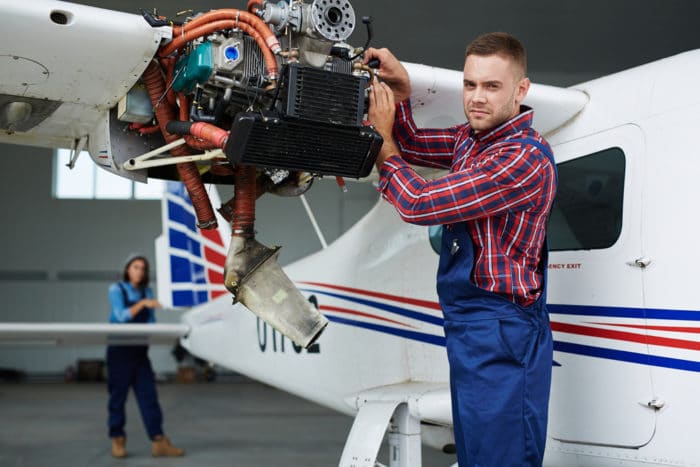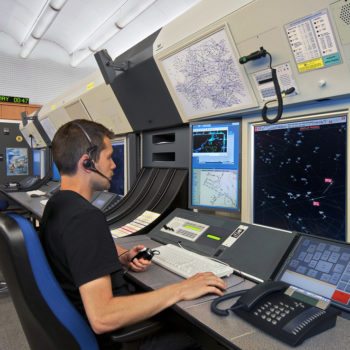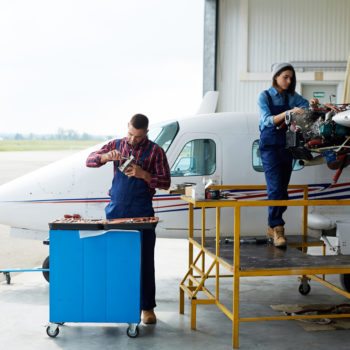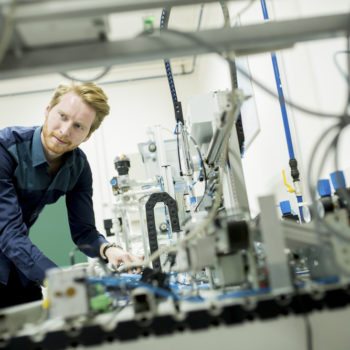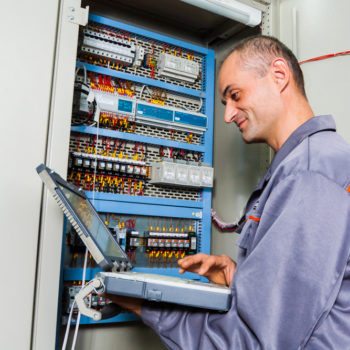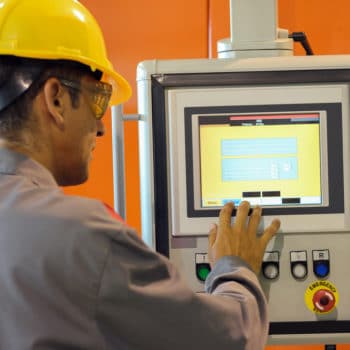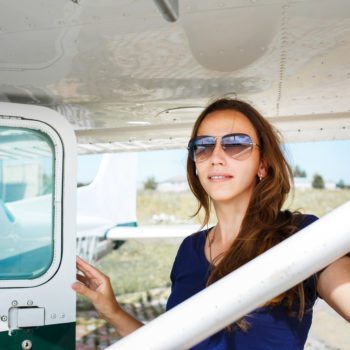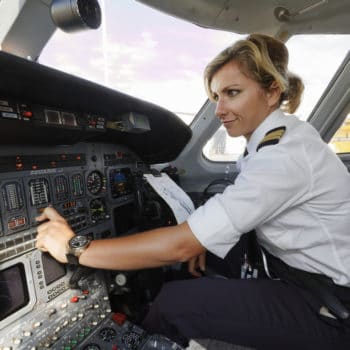Why We Love It
-
$60,160Potential Avg. Salary
-
1.3%Job Growth Rate
-
Growing DemandJob Outlook
-
Dependable Daily WorkloadCareer Attribute
Aircraft mechanics perform repairs and scheduled maintenance on a wide variety of aircraft. They also carry out inspections as mandated by the FAA (Federal Aviation Administration).
Recommended Schools
What is an Aircraft Mechanic?
Aircraft mechanics must be detail oriented individuals with keen observational skills while also possessing the physical capabilities of working with heavy equipment and machinery. They are problem solvers, comfortable working alone and as part of a team. While wages are above average compared to the national median for all occupations, the work can by quite rigorous and overtime, nights and weekends are common.
Aircraft mechanics typically do the following in the course of fulfilling their duties:
- Inspect aircraft components, including fuselage, hydraulic systems, landing gear and deicers to locate flaws, leaks or cracks.
- Repair or replace defective parts, such as wings, brakes, electrical systems, and other aircraft components
Replace defective parts, using hand tools or power tools - Diagnose mechanical or electrical problems
- Conduct routine and special inspections as required by regulations. Inspect completed work to certify that maintenance meets standards and that aircraft are ready for operation.
- Modify aircraft structures, space vehicles, systems, or components, following drawings, schematics, charts, engineering orders, and technical publications.
- Maintain, repair, and rebuild aircraft structures, functional components, and parts such as wings and fuselage, rigging, hydraulic units, oxygen systems, fuel systems, electrical systems, gaskets, and seals.
Airplanes are highly complex machines that require reliable parts and service to fly safely. To keep an airplane in operating condition, aircraft and avionics equipment mechanics and technicians perform scheduled maintenance, make repairs, and complete inspections. They must follow detailed federal regulations set by the FAA that dictate maintenance schedules for different operations.
AREAS OF SPECIALIZATION
Many mechanics are generalists and work on many different types of aircraft, such as jets, piston-driven airplanes, and helicopters. Others specialize in one section, such as the engine, hydraulic system, or electrical system, of a particular type of aircraft. In independent repair shops, mechanics usually inspect and repair many types of aircraft.
Most mechanics who work on civilian aircraft have either one or both of the FAA’s Airframe and Powerplant (A&P) certificates. Mechanics who have these certificates are authorized to work on most parts of the aircraft, excluding flight instruments and major work on propellers. Maintaining a plane’s electronic flight instruments is typically the job of specialized avionics technicians.
Recommended Schools
How To Become an Aircraft Mechanic
Although aircraft mechanics and technicians are not required to get licenses or certifications, the reality is that most of them do, because they can often improve their marketability and salary. The FAA requires that aircraft maintenance be done either by a certified mechanic or under the supervision of such a mechanic. Thus, many mechanics and technicians learn the trade at an FAA-approved aviation maintenance technician school. Others enter with a high school diploma or GED and are trained on the job. Some workers enter the occupation after getting training in the Armed Services.
Aircraft Mechanic Salary Data
We’ve provided you the following to learn more about this career. The salary and growth data on this page comes from recently published Bureau of Labor Statistics data while the recommendations and editorial content are based on our research.
National Anual Salary
Low Range
$46,720Average
$60,160High Range
$89,050National Hourly Wage
Low Range
$22/hrAverage
$29/hrHigh Range
$43/hrHow do Aircraft Mechanic salaries stack up to other jobs across the country? Based on the latest jobs data nationwide, Aircraft Mechanic's can make an average annual salary of $60,160, or $29 per hour. On the lower end, they can make $46,720 or $22 per hour, perhaps when just starting out or based on the state you live in.
Salary Rankings And Facts
#268 Nationally for All Careers
Above Average Salary Nationally
Programs and Degrees
Here are the most common degrees for becoming an Aircraft Mechanic. a is usually recommended and specifically a degree or coursework that prepares you for the particular field, see below.
Highest Education Among Aircraft Mechanics
- 0.2% Doctorate
- 1.2% Masters
- 8.7% Bachelors
- 20.4% Associates
- 39.6% College
- 27.2% High School
- 2.7% Less than High School
Job Growth Projections and Forecast
2014 Total Jobs
119,9002024 Est. Jobs
121,500Job Growth Rate
1.3%Est. New Jobs
1,600How does Aircraft Mechanic job growth stack up to other jobs across the country? By 2024, there will be a change of 1,600 jobs for a total of 121,500 people employed in the career nationwide. This is a 1.3% change in growth over the next ten years, giving the career a growth rate nationwide of Above Average.
Growth Rankings And Facts
#570 Nationally for All Careers
Above Avg. Growth Nationally
What Companies Employ The Most Aircraft Mechanics
| Industry | Current Jobs | New Jobs Needed | % Increase |
|---|---|---|---|
| Support activities for air transportation | 34,100 | 2,800 | 3% |
| Scheduled air transportation | 26,000 | -800 | -1% |
| Aerospace product and parts manufacturing | 18,300 | -1,000 | -1% |
